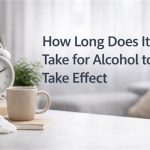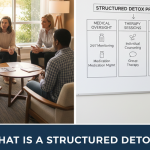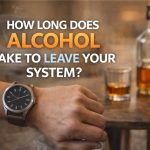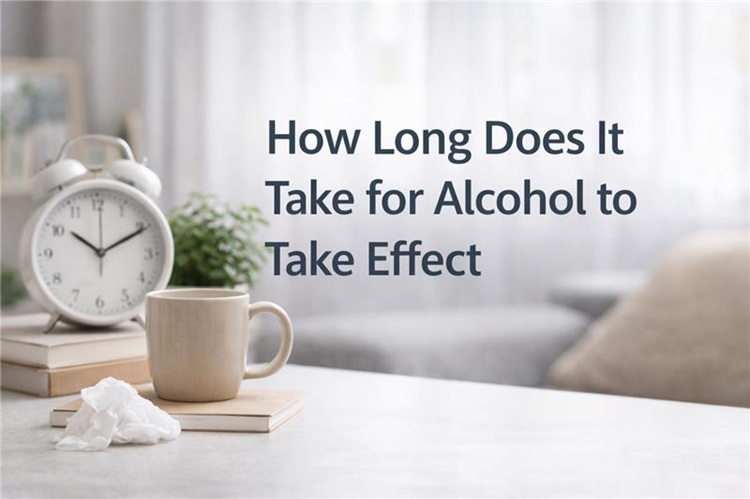Drug and alcohol addiction is a global challenge, threatening the health of millions of people. The National Institute on Drug Abuse (NIDA) estimates that about 21 million people in America suffer from substance abuse issues. It is important for the population that actively looks for help, as well as the concerned family members, to know about the most efficient substance abuse treatments. In this blog, we will discuss the different treatment approaches that are implemented to treat patients with substance use disorders so that individuals get the information they need and seek help from professionals.
Understanding Substance Abuse
Substance abuse can be defined as the detrimental or potentially dangerous consumption of psychoactive substances with the ability to alter the individual’s perception, mood, and physical functioning these psychoactive substances include alcohol and illicit drugs. This leads to substance dependency, which is a type of sickness that is defined by compulsive substance usage with detrimental effects. The symptoms of substance use depend on the substance in use common symptoms are failing in duties, increased tolerance, having withdrawal symptoms, and despite noting harm to the health of the user or the user’s family or friends, the user continues to use the substance.
The impacts of substance use are severe since people pay the price in terms of their physical and mental development, social relationships, and financial well-being. In a broader perspective, substance addiction causes a hike in health costs, diminishes efficiency, and raises crimes. The cost implications in society are highly alarming, which makes it imperative for effective treatments to be established.
Overview of Treatment Approaches
Accepting the need to seek help for substance abuse is the best start in the process of being a patient. There, are, indeed, different approaches to the management of substance use disorders, and all of them are meant to help handle different aspects of the condition. Among them, the most popular methods are inpatient and outpatient treatment, therapy, medication, and support group meetings. This means that these treatments may not always yield the same results as they are provided based on the condition of the patient’s situation, and therefore, the treatments offered should be as personalized as possible.
100% Confidential Support is Available 24/7
No matter what you’re going through, you’re not alone. Our dedicated team is here to provide a safe, judgment-free space where you can talk openly and honestly. Whether you need emotional support, resources, or just someone to listen.
We’re here for you—completely confidential and always respectful of your privacy. Call us today!
The Most Common Treatment – Behavioral Therapy
Behavioral therapy is the most known and effective method of treating substance-dependent patients. It aids the patients in the modification of their undesirable behaviors and also equips them with the necessary mechanisms to handle the precipitating factors and urges. The aim is to empower clients to abstain from substance use and continue on the path.
CBT is known as one of the most effective types of behavioral cure. Particularly, it involves an evaluation of negative patterns of thinking and practice linked to substance use disorder. The concepts acquired by the patients include stress management, avoiding high-risk situations, and managing relapse periods. CBT is a useful treatment approach that has been applied in the treatment of several Substance Use Disorders and is normally used in combination with other treatments.
Contingency management includes offering financial incentives for completing treatment goals, such as continued abstinence from substances. This approach relies on positive reinforcement to prevent relapse and ensure that patients continue to follow the treatment plan. This kind of approach has been proven to enhance the effects of the treatment, especially when it comes to patient adherence to recovery programs.
MI stands for Motivational Interviewing, which is a therapy technique employed to encourage patients to change their behaviors voluntarily. It means communication that is genuine and does not encourage condemnation, but rather encourages the client to follow a program of rehabilitation. In a way, motivational interviewing can enable change for individuals because it assists them in understanding their mixed feelings about substance consumption and builds on those individuals’ self-generated desire for change.
Research has also indicated that behavioral therapies are highly effective in the treatment of substance use disorders, especially when used in conjunction with other forms of treatment. For instance, a qualitative meta-analysis based on 53 studies observed a noteworthy reduction in substance use connected with cognitive behavioral interventions, particularly if they were integrated into a multimodal treatment plan.
Deland Treatment Solutions
Battling with Drug and Alcohol Addition? Remember, you are not alone and we are here to help you!
Medication-Assisted Treatment (MAT)
Another commonly accepted and effective model is medication-assisted treatment (MAT). It uses pharmacotherapy drugs in conjunction with behavioral therapy to treat substance use disorders. In addressing this issue, MAT aims to solve the physiologic and psychologic problems that come with substance use and dependence.
Methadone: It helps to decrease or alleviate the withdrawal syndromes and cravings associated with opioid-dependent individuals. Methadone is an opioid agonist drug that is long-acting and can help a patient become more stable so that he/she can participate in therapy and other treatment activities.
Buprenorphine: Complements opioids in managing craving and withdrawal signs. Buprenorphine is a mixed-agonist-antagonist drug such that it has less abuse and overdose risk than methadone which is a full agonist.
Naltrexone: Opposes and inhibits the sedative and euphorigenic effects of opioids as well as alcohol. This medication’s primary use is to block the rewarding properties of opioids and promote abstinence by utilizing the opioid antagonist, Naltrexone.
Using MAT alongside behavioral therapies is more effective as it allows for holistic treatment of the patient. Research shows that MAT could potentially elevate the chances of patients’ recovery, lessen the rates of relapses, and enhance overall patient compliance with treatment plans and programs. For instance, studies have proven that patients using MAT for opioid use disorder demonstrate higher retention rates of the intervention and have higher chances of recovery as compared to behavioral therapy.
Other Common Treatment Methods
Inpatient and Outpatient Rehab Programs: Inpatient programs include receiving services full-time at a particular clinic and are more formal as compared to outpatient services, which involve patients receiving services for treatment but being allowed to go home during the day. Each method has its advantages and can be useful for anyone dealing with substance dependence, depending on how severe the problem is and the patient’s condition.

Support Groups: Self-help groups offer peer support and a sense of community to the patients in programs, where they can tell their stories listen to others, and get something good said to them.
Holistic Approaches: Cognitive techniques including yoga, meditation, and acupuncture can work hand in hand with conventional therapies to enhance patients’ health and keep stress at bay. They, as a result, cover the body, mind, and spirit factors that define the recovery process and thus make the recovery more natural and realistic.
Aftercare and Relapse Prevention: Aftercare, counseling, and management measures to ensure that the patients do not regress are as vital as initial treatment. Such may comprise follow-up therapy sessions, support groups, and check-ups with practitioners and other treatment providers. Therapies focusing on relapse prevention assist the patient in going back to their everyday life while having a support system.
Choosing the Right Treatment
The timing and choice of the right treatment are crucial in the management of the condition. Since patients have different conditions, personalized treatments work best for patients’ survival. Some of the considerations that need to be made include substance use type, the degree of dependency, the presence of other mental health disorders, and general patient scenarios. It is advisable to seek the help of professionals in identifying the most appropriate care plan.

At Deland Treatment Solutions, we recognize the fact that substance abuse treatment is a very personal process. Our team of competent and motivated professionals offers personalized treatment plans for every patient. Reaching out to Deland Treatment Solutions may be the most important call of your recovery process. A caring professional is waiting for your call to be your guide to addiction-free living. Need Help? Contact us at (386) 866-8689 or email us at info@shc.health.





















